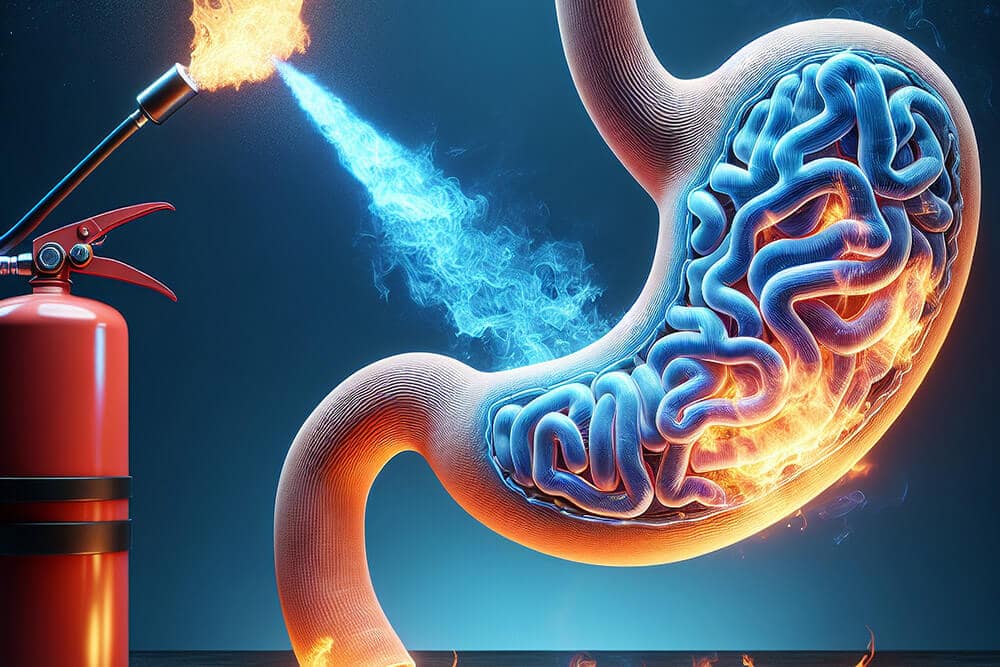What Are Abnormal Liver Function Studies (LFTs)?
Liver function studies (LFTs) are a group of blood tests that measure enzymes and proteins produced by the liver, including ALT, AST, alkaline phosphatase and bilirubin. When any of these markers fall outside the normal range, it indicates that the liver may be under stress or sustaining damage. In ICD-10 coding, abnormal LFT results are classified under code R94.5.
Common Causes and Risk Factors
- Obesity or overweight
- Type 2 diabetes and insulin resistance
- High cholesterol or triglycerides
- Heavy alcohol use (alcoholic fatty liver)
- Metabolic dysfunction-associated steatotic liver disease (MASLD)
- Rapid weight loss or poor nutrition
- Chronic viral hepatitis (B or C) or autoimmune hepatitis
- Use of certain medications or toxins (e.g., acetaminophen overdose)
- Gallstones or bile duct obstruction
- Family history of liver disease
- Acute fatty liver of pregnancy
Signs and Symptoms
- Often none in early stages
- Generalized fatigue or weakness
- Mild pain or fullness in the upper right abdomen
- Yellowing of the skin or eyes (jaundice)
- Dark urine or pale stools
- Unexplained weight loss
- Itchy skin
- Swelling in the legs or abdomen (advanced disease)
- Nausea or loss of appetite
How Dr. Rishi Diagnoses Abnormal Liver Function Studies (LFTs)?
Dr. Rishi Chadha uses a step-by-step approach:
Medical History and Exam
He reviews your health history, current medications, alcohol use, and family history of liver disease.
Physical Exam
He checks for signs of jaundice, abdominal swelling, and liver tenderness.
Blood Tests (LFT Panel)
He orders tests to measure liver enzymes and proteins (ALT, AST, alkaline phosphatase, bilirubin) and rules out other causes of liver injury.
Imaging Tests
- Ultrasound evaluates fat accumulation, scarring, or bile duct obstruction.
- FibroScan (elastography) measures liver stiffness non-invasively.
Liver Biopsy (If Needed)
In select cases, a small tissue sample is taken under ultrasound guidance to confirm the diagnosis and assess the degree of inflammation or fibrosis.
Frequently Asked Questions
What are liver function tests (LFTs)?
They are blood tests that evaluate enzymes and proteins like ALT, AST, ALP, bilirubin, and albumin to assess how well your liver is working.
What is considered an abnormal LFT?
If one or more test values are higher or lower than the normal range, it is considered abnormal. Dr. Rishi Chadha investigates the specific cause during your evaluation.
Can I have abnormal LFTs without symptoms?
Yes. Many people with liver enzyme changes feel fine. That's why routine blood work is important for early detection.
What conditions cause abnormal LFTs?
Fatty liver disease, hepatitis B/C, alcohol use, medications, obesity, autoimmune liver disease, and metabolic conditions can all affect liver test results.
Can medications affect liver function tests?
Yes. Common drugs like acetaminophen, antibiotics, statins, and some herbal supplements can elevate liver enzymes. Dr. Chadha reviews your medication history in detail.
How are LFT abnormalities diagnosed?
Dr. Chadha uses your medical history, blood tests, imaging (like ultrasound or FibroScan), and sometimes biopsy to diagnose the cause of LFT changes.
What lifestyle changes improve LFT results?
Weight loss, limiting alcohol, avoiding unnecessary medications, managing diabetes, and eating a balanced diet help improve liver health.
Can abnormal LFTs return to normal?
Yes. Many patients normalize their liver enzymes with proper treatment and lifestyle adjustments.
Is follow-up necessary for abnormal LFTs?
Absolutely. Dr. Chadha typically rechecks levels in 3-6 months depending on the severity and underlying cause.
When should I consult Dr. Chadha for LFT issues?
If your LFTs remain abnormal or you have symptoms like fatigue, yellowing skin, or upper abdominal pain, schedule an appointment at GastroDoxs in Houston.











